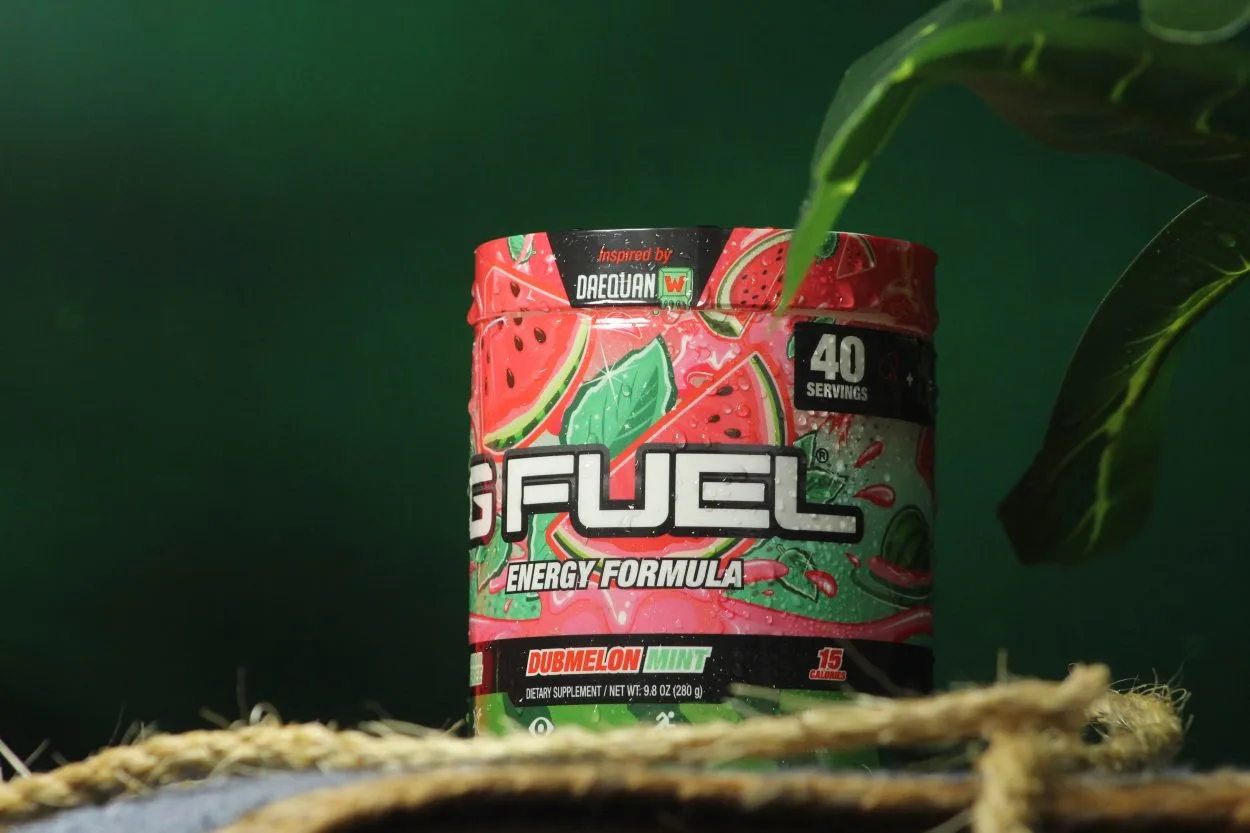
Energy powders aren’t necessarily bad for you, however, it entirely depends on how much and what kind of powder you’re consuming.
Energy powders are the same as energy drinks, the only difference is that energy drinks can be consumed for several reasons, but energy powders on the other hand are solely consumed as a pre-workout.
The thing that may make energy powders bad for you is immoderate consumption. Energy powders contain ingredients that may cause health complications if not consumed in an adequate amount.
Energy powders usually come in sachet or tub form that’s supposed to be mixed with a certain amount of water. Moreover, energy powders also come in a variety of flavors and sizes.
In this article, we’ll find out what ingredients energy powders have and share a complete fact file about them. So without any further ado, let’s jump in!
Contents
Ingredients In Energy Powders
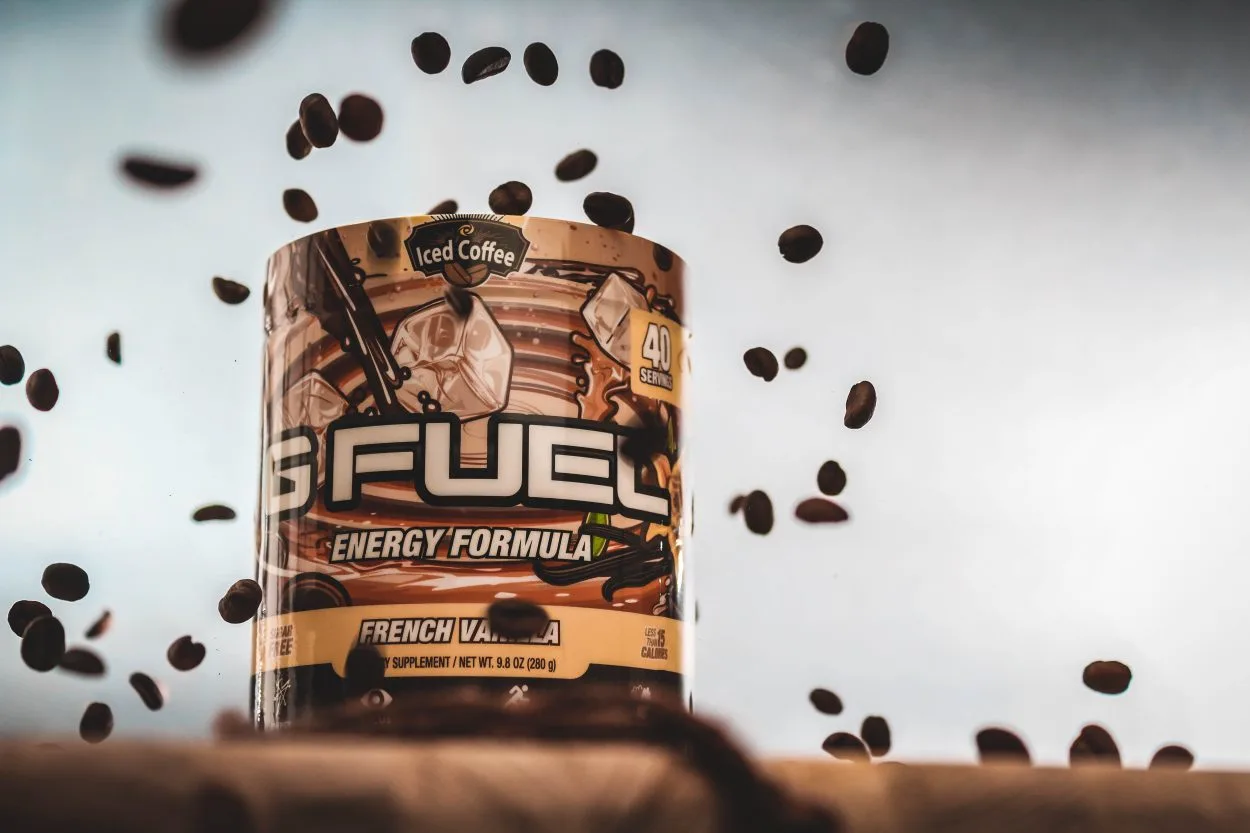
The main ingredients that you may find in almost every energy/power drink are:
- Caffeine.
- Taurine.
- Glucuronolactone.
- B vitamins.
- Guarana.
- Ginseng.
- Ginkgo biloba.
- L-carnitine.
- Sugars.
- Antioxidants.
- Trace minerals.
Let’s discuss them one by one:
- Caffeine
Caffeine is the devil in disguise, while it may give you a boost for a short period of time, in the long run, it can have its negative effects. Studies have said that caffeine increases the risk of coronary heart and even miscarriages.
The only way to avoid such side effects is to reduce your consumption of caffeine to 100 mg daily.
However, if you consume more than 100 mg, refrain from abrupt cutbacks as this action can cause caffeine withdrawal symptoms like fatigue and sleepiness.
- Taurine
Taurine is an amino acid that can be found in simple everyday foods like fish. Researchers hypothesized that consuming taurine along with caffeine increases concentration and improves emotional status.
While Taurine has several great positive effects, a study examined a few side effects in patients with renal failure including neurological symptoms like headaches and seizures.
Learn more about taurine and how it affects your body.
- Guarana
Guarana is a plant that originated in the Amazon region. The consumption of guarana has several health benefits which include anti-inflammatory, antioxidant, anticancer, hypocholesterolemic, and anti-obesity effects.
A study was conducted, including patients with breast cancer. It stated that Guarana is an effective and nontoxic drug for the short-term treatment of fatigue in patients with breast cancer, receiving systemic chemotherapy.
- Sugar
Sugar is the same as caffeine, immoderate consumption can lead to health complications, and moderate consumption is more than enough to balance the sugar levels.
However, in a study, it’s said that sugar can lead to weight gain and eventually obesity.
There’s a huge amount of sugar in energy drinks, so keep an eye out.
Here’s the table for some of the most popular energy powders with their sugar and caffeine content.
| Energy Powders | Sugar Content | Caffeine Content |
| Celsius Powdered Energy Drink | Zero Sugar | 200mg per serving. |
| Ghost Gamer Powder | Sugar-Free | 150mg per two scoops |
| Zipfizz Healthy Energy Drink Mix | Zero Sugar | 6.25 mg per 100 ml |
Are Energy Powders Harmful To Your Health?
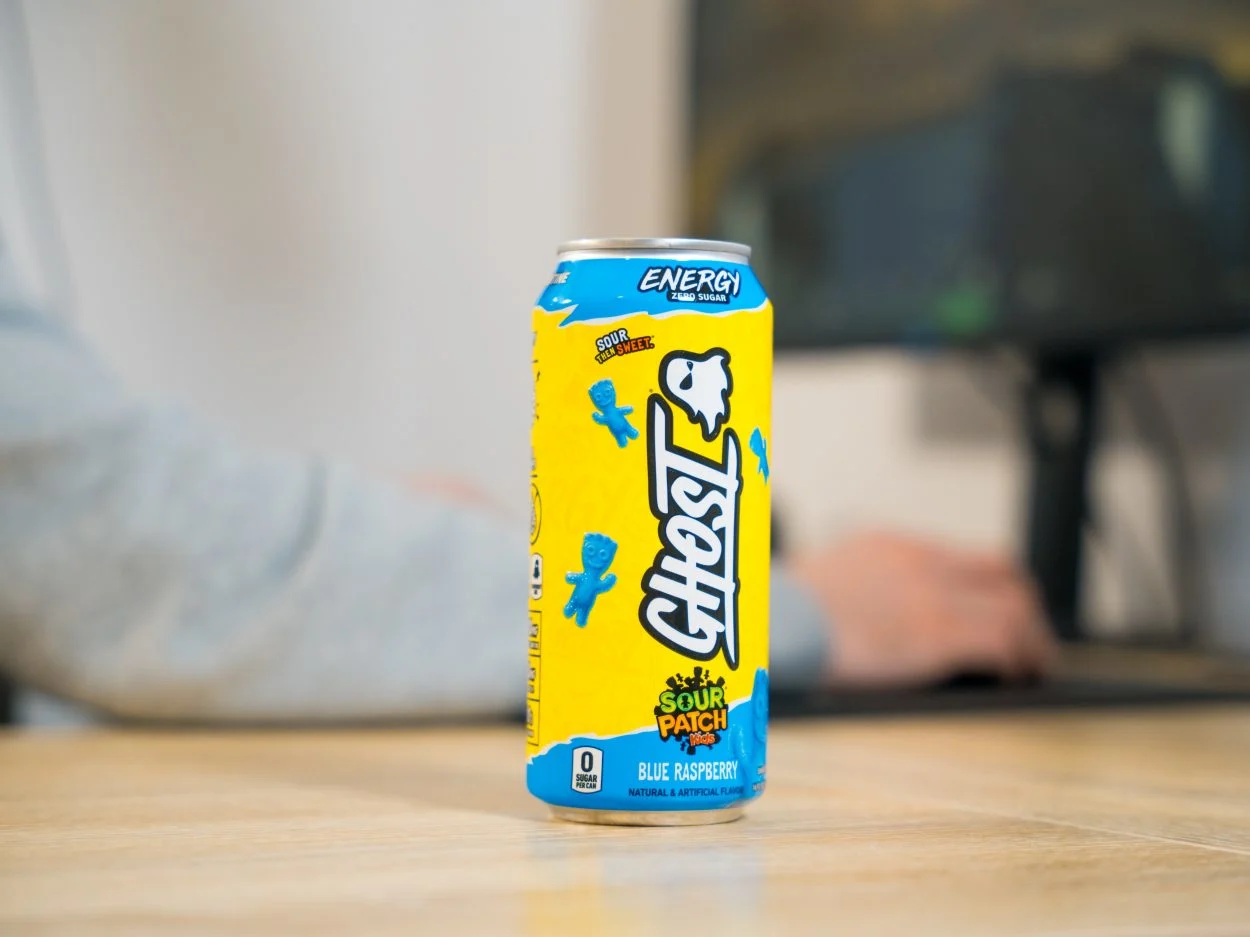
Well, it depends on how much you consume it, however, powdered energy drinks have been a hot topic. Most energy drinks have been found to cause health complications like heart attacks.
Yes, energy drinks can be harmful to your health if consumed in an immoderate amount. Or if you are caffeine-sensitive, energy drinks can be harmful because most drinks contain a high amount of caffeine.
One of the studies says that the most common symptoms that were caused by energy drinks are:
- Palpitations.
- Agitation.
- Tremor.
- Gastrointestinal upset.
While in serious cases:
- Cardiac or neurological toxicity.
- hallucinations.
- Seizures.
- Arrhythmias or cardiac ischemia.
How Much Caffeine in Energy Powders
Caffeine is the main ingredient in energy powders, however, some powders go overboard with the amount which can lead to anxiety.
The good thing about energy powders is that you can adjust the number of caffeine levels by either reducing the powder or adding more water.
Every energy powder has a different quantity of caffeine, but most commonly it’s 140 to 150 mg per serving.
For a healthy adult, 400 mg is considered a moderate amount of caffeine daily. If you are sensitive to caffeine, you should limit your caffeine intake to 100 mg per day.
How Much Sugar in Energy Powders
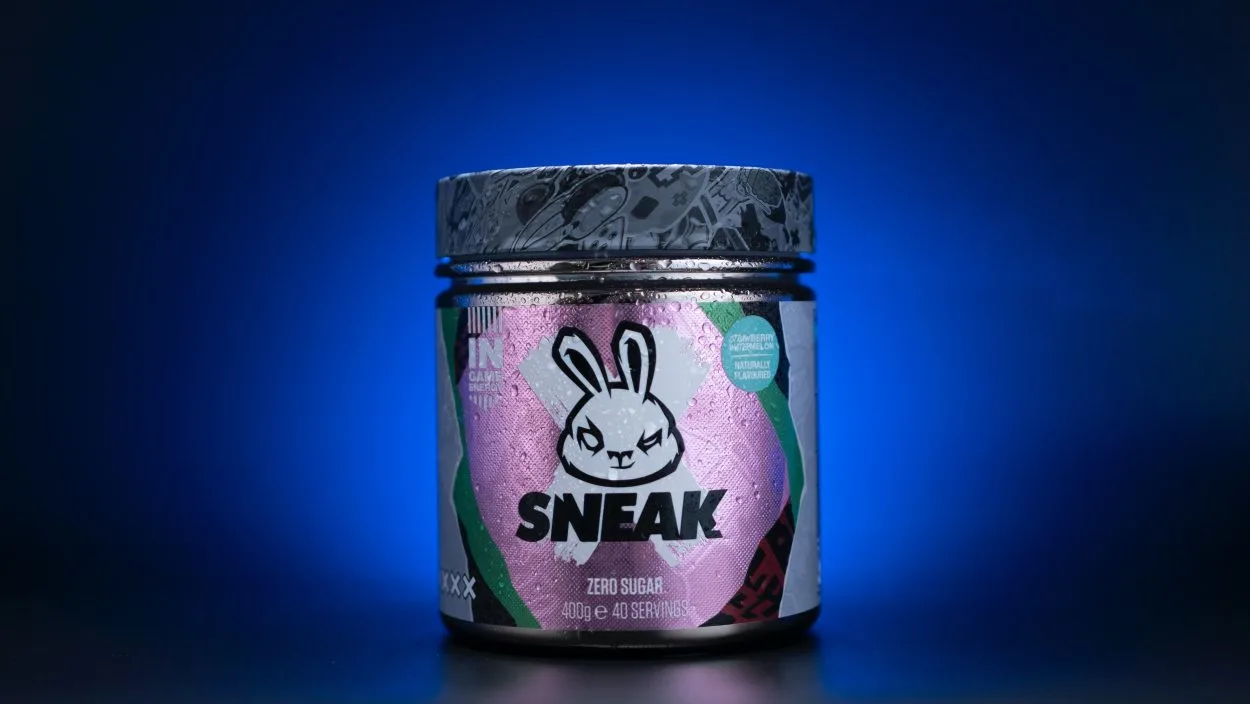
Often energy powders are sugar-free, but some of them may contain sugar.
Sneak, Gatorade Endurance Formula, and Ghost Gamer are sugar-free energy powders, whereas G Fuel and X-Gamer contain sugar.
Mostly sugar is added to energy powders to provide a sweetness effect, often you can also find sugar substitutes in some energy powders.
Sugar has some benefits for your body only if consumed in moderation.
- Provides bursts of energy
- Stores fat
- Instant mood boost
- Improves thinking skills
You might have not known that the AHA recommends limiting added sugar to 36 grams daily for men, whereas 25 grams daily is recommended for women as well as for children over 2.
While sugar gives you a sweet taste, it can also cause health complications which include:
- Weight gain
- Increase risk of heart disease
- Acne
- Risk of diabetes
- Increased risk of cancer
- Depression
- Skin aging
What Are The Bad Ingredients in Energy Powders?
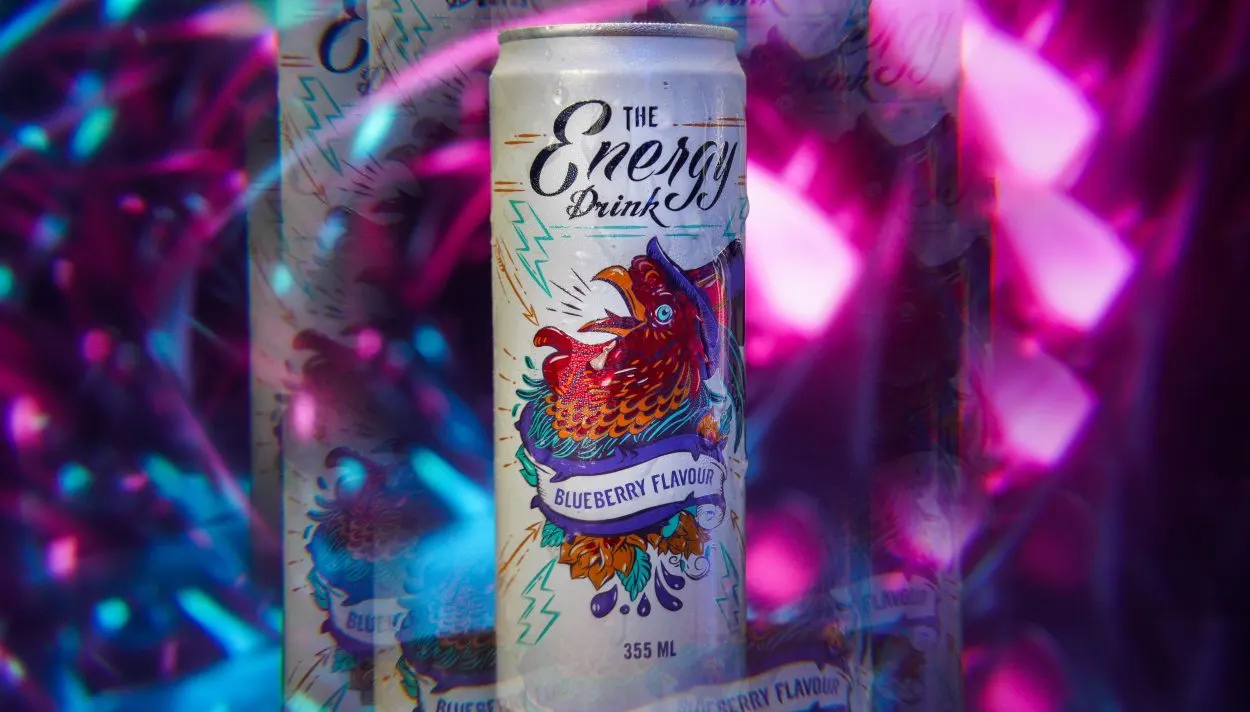
Caffeine-jacked products keep you focused and improve cognitive performance. However, other than caffeine, energy drinks contain several other ingredients that may have negative effects on your health.
Energy drinks are generally safe, however, they could give rise to negative reactions in some people. These arise due to immoderate consumption or combination with other beverages, supplements, or prescription drugs.
The next time you buy yourself an energy drink, think of these problematic ingredients that have the potential to harm you.
Caffeine
Caffeine is an active ingredient in beverages, and 16 ounces of the caffeinated beverage have between 70 to 240 mg of caffeine.
It may not seem like a huge amount of caffeine, but if you are consuming a few cans at a time, the caffeine will add up and may show side effects.
Depending on your tolerance of caffeine, it can rapidly increase your heart rate and blood pressure. Moreover, it may show symptoms like dehydration, agitation, nausea, shaking, and insomnia.
One of the biggest concerns regarding energy drinks is a mixture of these beverages with alcohol, like vodka, which has become quite popular among young adults.
Samantha Cassetty, RD says, “Alcohol is a central nervous system depressant, it makes you feel sleepy.” She also says that energy drinks can give your body the opposite effect, and that will lead to dangerous health complications.
Taurine
As you might know, Taurine is an amino acid that acts as a stimulant in order to increase physical and mental performance. Taurine can be found in everyday food as well as meat and seafood. The typical American diet provides about 123 to 178 mg of taurin per day.
However, according to the Journal of Medicine consuming a can of 8-ounce energy drinks can boost your daily consumption of taurine 6 to 16 times.
Moreover, the combination of caffeine with taurine may increase blood pressure and heart rate. A high quantity of taurine can also have an effect on the growth of adolescents.
Sugar
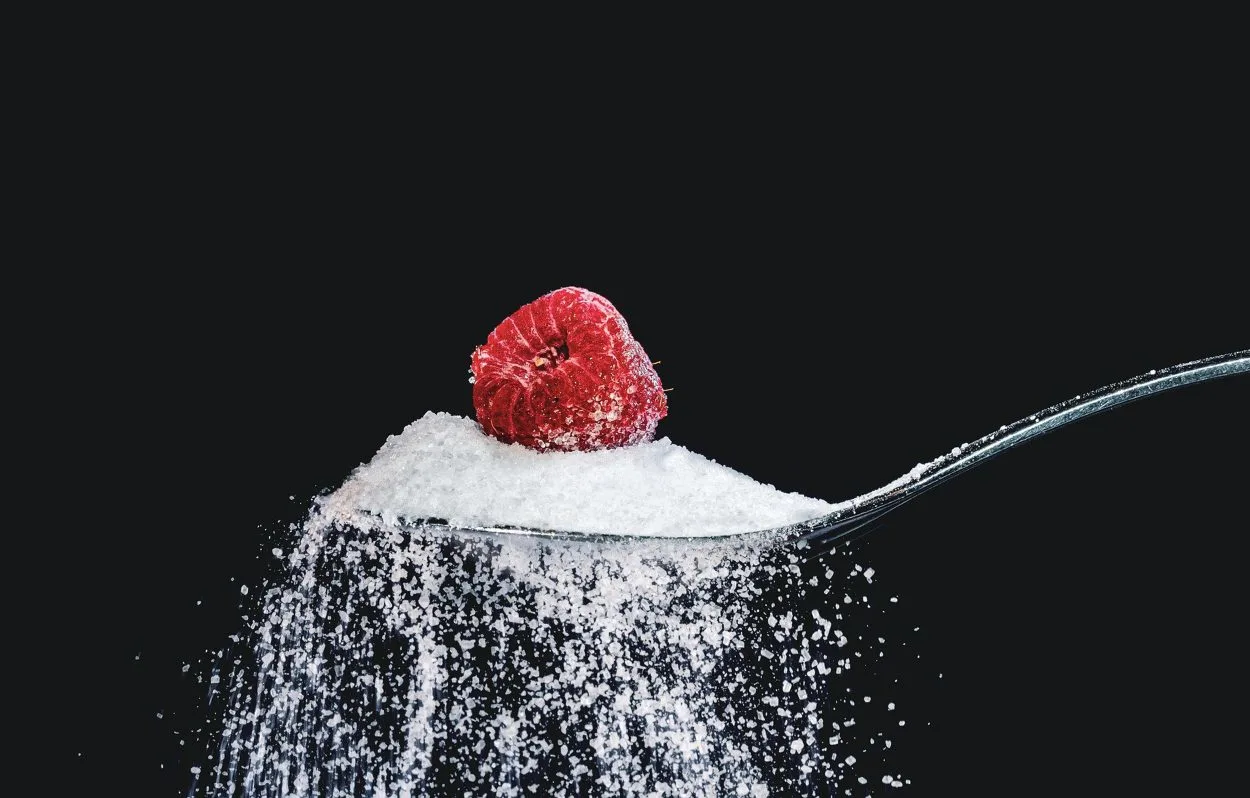
Energy drinks aren’t the ideal fitness beverages. They can give you a lot of extra calories and sugar, which in long term may lead to obesity, type 2 diabetes, and heart disease.
A 16-ounce can of Monster Energy drink has 233 calories with 56 g of sugar. Now that’s a much larger amount of sugar you will get from Monster than two small Dairy Queen ice cream cones.
The main problem with high-calorie or high-sugar beverages, they make it much easier to down an extra amount of calories without even realizing it.
The AHA recommends limiting your sugar intake to 25 to 36 grams daily.
Niacin
Niacin is a water-soluble vitamin B3, that is shown to augment the (good) HDL cholesterol and reduce (bad) LDL cholesterol as well as triglycerides, which is another blood fat.
However, some people are sensitive to this vitamin. Usually, energy drinks contain about 40 mg of niacin, while it is generally suggested to have only 16 mg of consumption for men and 14 mg for women.
The risk of niacin toxicity is very low, however, it’s possible, according to many nutritionists.
Here is a list of signs of niacin toxicity:
- Flushing.
- Dizziness.
- Low blood pressure.
- Fatigue.
- Headache.
- Upset stomach.
- Nausea.
- Blurred vision.
- Inflammation of the liver.
Guarana
Guarana is a plant seed that is used as a caffeine additive in energy drinks. In a study, researchers found that these seeds contain a highly concentrated quantity of caffeine, about four times of quantity of caffeine in coffee beans.
Ginseng
According to this article, ginseng can improve physical stamina, concentration, and memory. Moreover, it stimulates immune function, slows down the aging process, and relieves several other health problems.
While ginseng is often well tolerated, it has been found to cause hypertension, disrupted sleep, diarrhea, and more when ingested in larger quantities, according to research on Ingredient Safety.
Large amounts of ginseng have been shown to have a negative interaction with caffeine, alcohol, and prescription medications.
What Are The Best Energy Powders
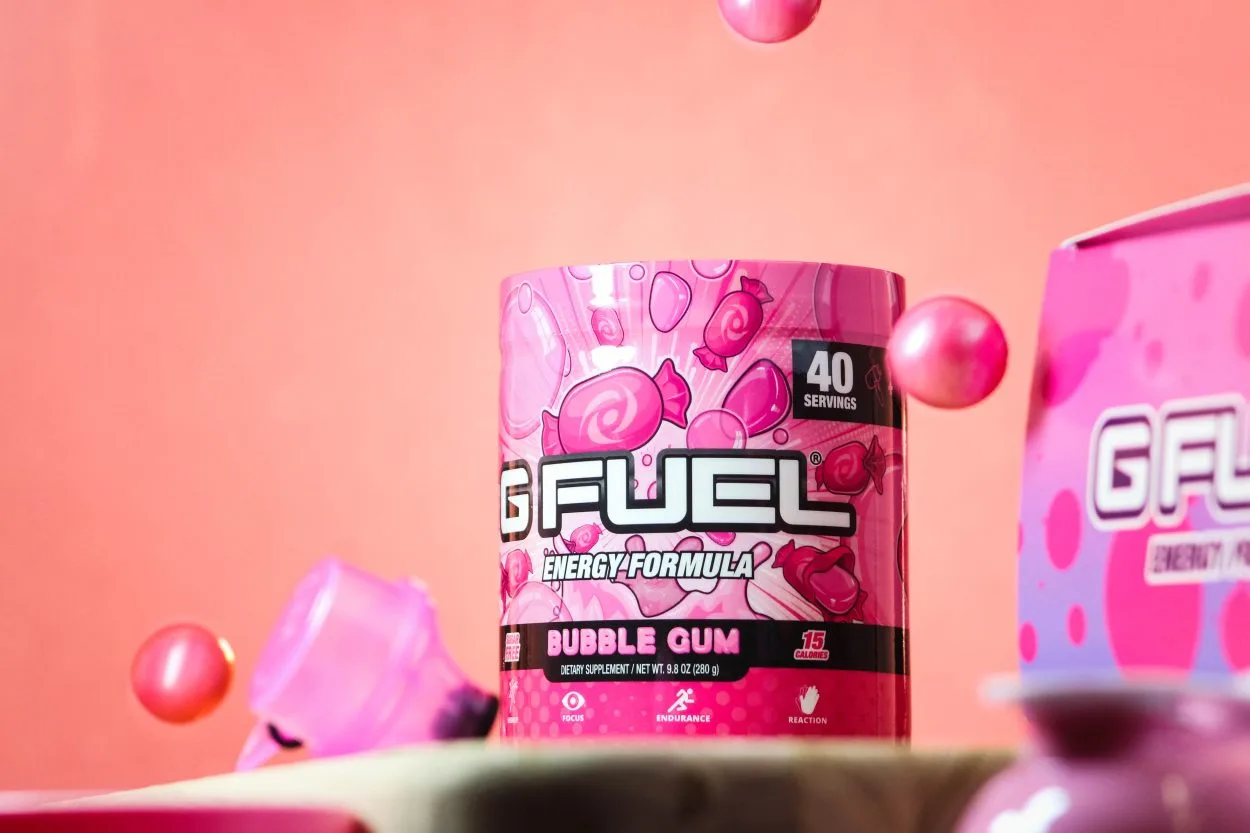
Best energy powders are those that are sugar-free or have a fewer quantity of sugar and caffeine.
Here’s a list of energy powders that have just the right amount of sugar and caffeine:
- Pureboost Clean Energy Drink Mix
Pureboost isn’t only sugar-free, it’s also ideal for a keto diet. Moreover, it contains 100 mg of caffeine content, which is a fair amount if you ask me.
- G Fuel Energy Tubs
While G Fuel has zero quantity of sugar, it has also a moderate amount of caffeine.
You’ll be getting about 140 to 150 mg per serving. This amount of caffeine will give you a boost of energy without making you jittery.
- Sqwincher Powdered Drink Mix
Sqwincher often comes in a single-serve packet, which is quite convenient.
It’s an electrolyte drink and has zero amount of caffeine. However, it contains a low amount of sugar, which is solely for sweetness.
Alternatives To Energy Powders
If you’re still looking for more energy powders that can give you the necessary energy, then you should consider following the energy powder listed below.
Conclusion
- Energy powders can be bad for you or good for you, it depends on how much you are consuming.
- The list of ingredients in energy powders is almost the same as energy drinks.
- Immoderate consumption of energy powders can cause many harms like gastrointestinal upset.
- Every energy powder has a different quantity of caffeine, but most commonly it’s 140 to 150 mg per serving
- Energy drinks give rise to negative reactions in some people due to immoderate consumption or combination with other beverages, supplements, or prescription drugs.
